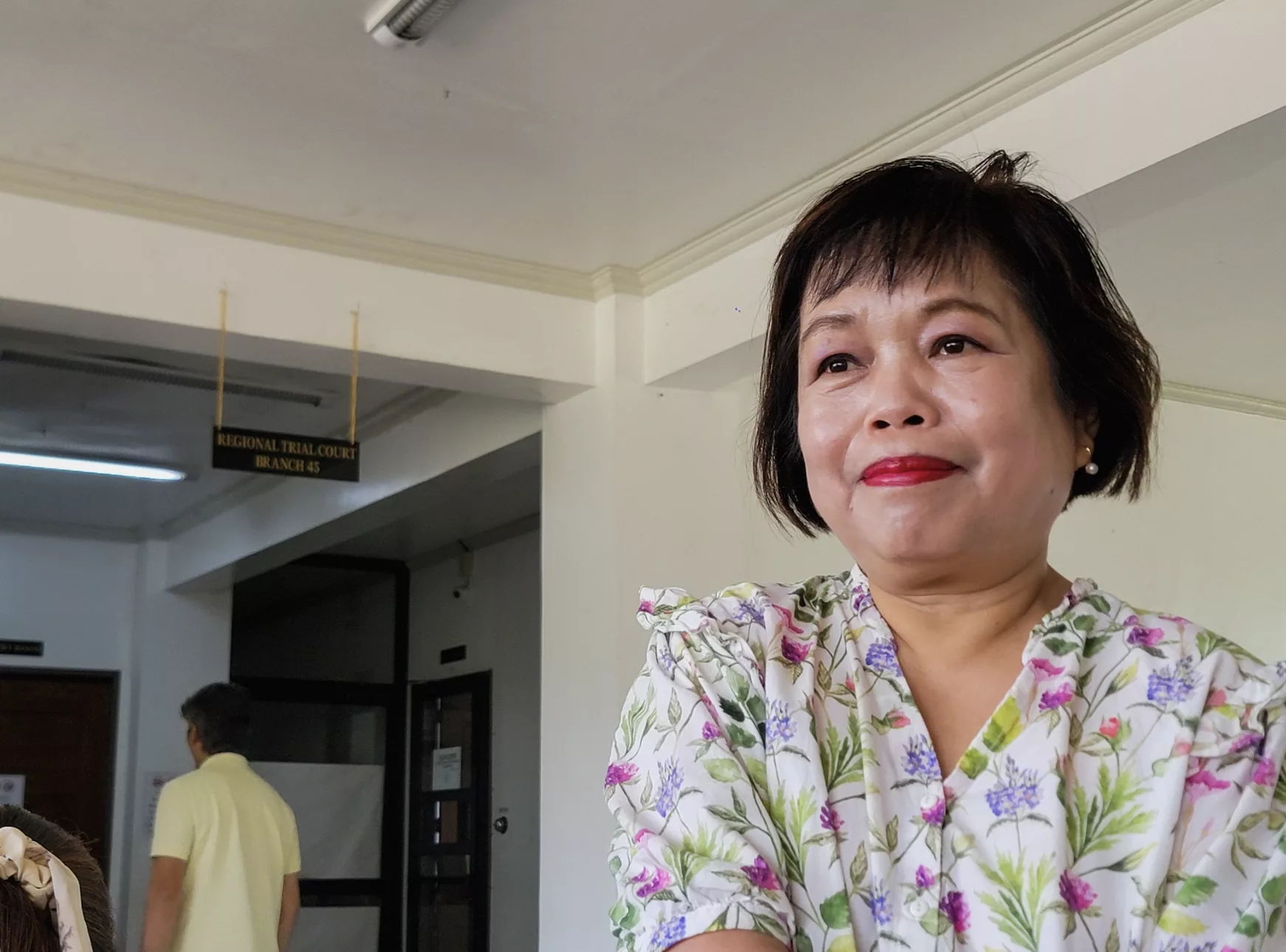Around the world, governments are increasingly treating those who deliver aid as enemies of the state. The case of Jasmin Jerusalem in the Philippines exposes how baseless terrorism charges are being used to paralyse NGOs — a tactic now spreading across more than 50 countries.
When you picture a terrorist, it’s unlikely that someone like Jasmin Jerusalem would come to mind. A small, kindly charismatic woman in her 60s, she has received multiple awards for her humanitarian work helping low-income communities recover from natural disasters in rural Philippines. I had the privilege of meeting her in the aftermath of Typhoon Haiyan, the most destructive typhoon ever recorded. It’s 330kmh winds destroyed homes, trees and crops with the force of a nuclear bomb when they barrelled into Leyte island in November 2013.
Jasmin and her team (The humanitarian NGO LCDE) were victims themselves, they all lost their homes and possessions. But before government and international aid agencies were able to mobilise, Jasmin and LCDE staff were immediately on the ground delivering emergency relief and livelihood support to more than 150,000 people.
Hiyan was an exceptional typhoon, but The Philippines is one of the world’s most vulnerable countries to the effects of the climate emergency. Floods, landslips, and wildfires affect more people every year. Jasmin and LCDE staff are there helping communities recover, providing emergency relief and helping people rebuild their businesses and livelihoods. Since 1988 she estimates they have helped over 1.1 million people.
In better times Jasmin had been awarded by her government for her service. But in May 2024, without warning, she and four of her staff were charged with financing terrorism. The organisation’s bank account was frozen by the government’s Anti-Money Laundering Council, alleging that they had been giving resources to terrorists. The charges against them were dismissed by the local court. But this year the case was refiled, with the same evidence and witnesses, this time singling out Jasmin and her family individually, freezing their personal bank accounts and cancelling the registration of their van used for delivering relief goods. Of course, with no access to its bank accounts, and no means of transport LCDE’s work has been curtailed. Its international funders, wary of being accused of working with an organisation accused of terrorism, have pulled out.
As the Defend NGOs Alliance says the allegations are baseless and trumped up. They report that they are part of a trend of escalating intimidation by the government on progressive organisations, activists, human rights defenders and communities asserting people’s rights to development.
A growing global trend
The Philippines approach of intimidating NGOs is brazen, but far from unique. We have identified over 50 countries, that collectively are home to nearly two thirds of the world’s population, that have in the last few years introduced laws and policies with similar effects.
When we first reported on this phenomena earlier this year, we identified 52 countries that had introduced laws aimed at limiting the ability of NGOs to receive funding from overseas. Our latest review adds another two, and reports updates to nine countries that have introduced harsher laws.
The first signs of anti-NGO laws emerged after the financial crash of 2008. They proliferated after Russia’s invasion of Ukraine. Countries (largely those aligned with Russia) began adopting laws aimed at reducing western influence within their borders. One facet of this was to restrict the activities of NGOs and limit their ability to be funded from overseas.
A common approach is to require NGOs to register before they can receive foreign funding. Last year there were protests on the streets of Tbilisi when the Georgian Government introduced a law requiring NGOs that receive foreign funding to register on a foreign influence registry. Nobody is under any illusion that being on the foreign influence registry is likely to lead to adverse consequences in the future.
Why do these laws exist?
NGO laws have been introduced by authoritarian and populist governments across the world. These governments are generally attracted to more protectionism and less free trade. Many have applied a similar approach to international aid.
Authoritarian governments are often led by people who seek total control over messaging. So-called ‘strong man’ leaders like Valdimir Putin in Russa, and Xi Jinping in China are hostile to scrutiny. NGOs, often critical of government policies, become easy targets, especially those with foreign ties, which can be framed as threats to national sovereignty.
Governments often justify restrictive NGO laws by citing transparency or protection from foreign influence. While these goals may seem reasonable, it’s doubtful the laws achieve these ends. I have described before that international NGOs share some responsibilities for this situation. But the effect is a shrinking of the space for civil society. It’s a trend that should alarm us all.
Civil society enables people to scrutinise and challenge the way they are governed. And in a world with more threats and disasters, its NGOs like Jasmin’s in the Philippines that are at the frontline of providing emergency help. When the next typhoon hits, having Jasmin barred from international funds as she fights legal battles to unlock her bank account and her van, could well have a cost that is counted in people’s lives.
Stay updated on global housing news
Subscribe to our monthly newsletter in English or Spanish



